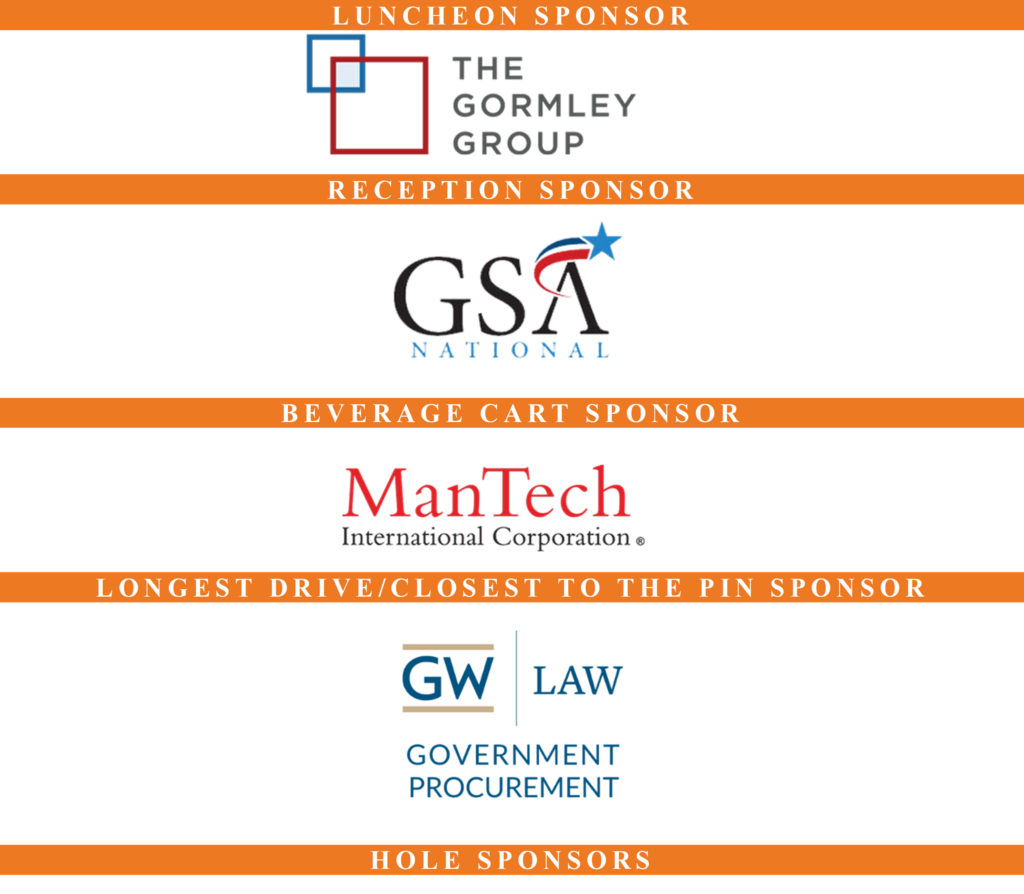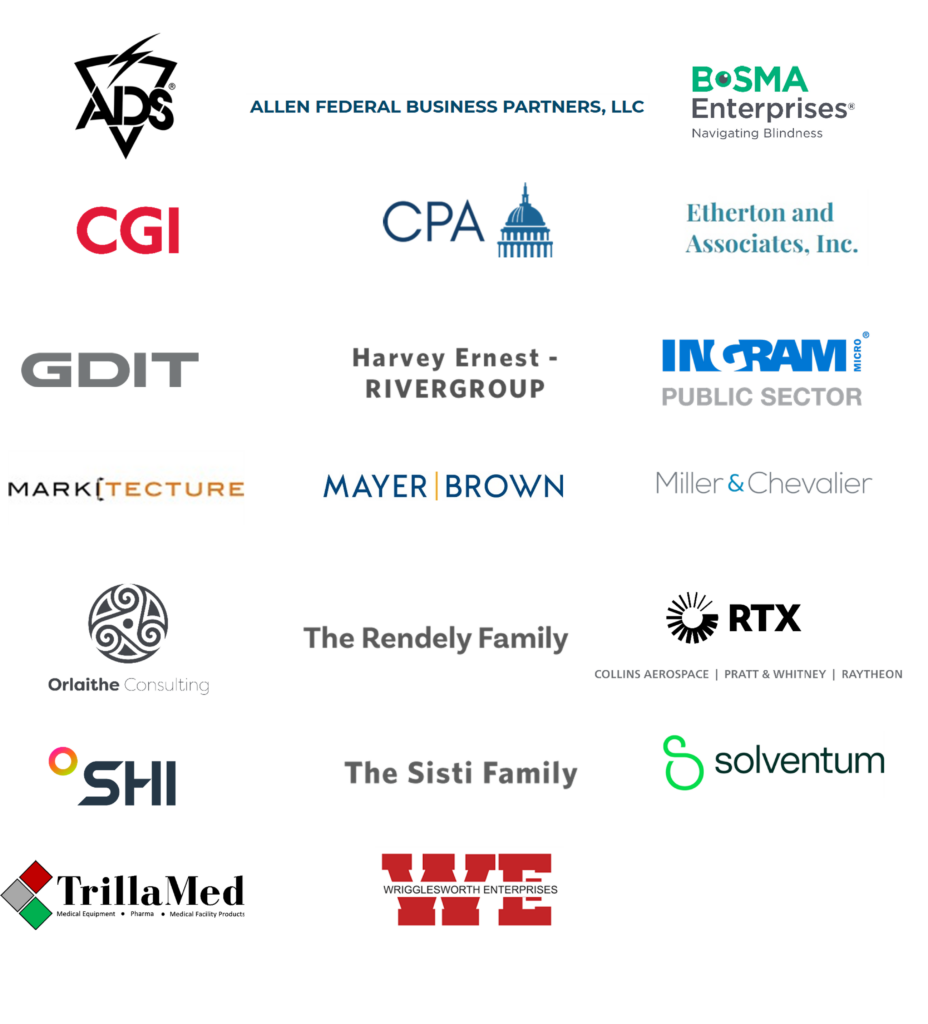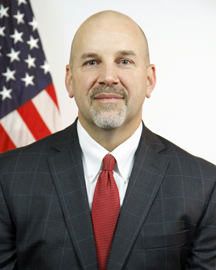FAR & Beyond: The Government’s Mixed Messages on Global Supply Chains, Continued…
Two weeks ago, FAR & Beyond focused on the “Competing Global Supply Chain Approaches” governing federal acquisition. The blog outlined the significant differences between the Buy American Act (BAA) and the Trade Agreements Act (TAA). This blog continues to explore the mixed supply chain messages the federal government is communicating to the industrial base. These differences are highlighted by the differing treatment of Chinese products and whether they are eligible for purchase in response to a government requirement.
The BAA provides a price evaluation preference, favoring domestic producers over foreign offers in a covered procurement. As such, if the price of an offered Chinese product is low enough, the federal government will buy that product. For large business offerors the price preference added to non-domestic offers is 20%, and for small business offerors it is 30%. For Department of Defense acquisitions, the preference is 50% for all domestic offerors, regardless of size.
In contrast, under a procurement covered by the TAA, an offeror must supply products made or “substantially transformed” domestically or made or “substantially transformed” in allied countries with which the United States has a trade agreement. China is not one of those countries. Accordingly, Chinese products are ineligible for award under TAA covered procurements. The TAA applies to most commercial procurements, as it applies generally to procurements exceeding $174K. Part 25 of the Federal Acquisition Regulation (FAR) lays out the rules for the BAA and TAA. Significantly, the TAA also provides that the President (through the US Trade Representative) cannot waive small business preferences. As a result, FAR Part 25 provides that the TAA does not apply to small business set-asides for supplies, regardless of the value of the procurement. Under small business set-asides eligible products are limited to those made by domestic small businesses. There is one exception to the set-aside requirement to supply a product made by a domestic small business. The exception is triggered by a waiver of the Non-Manufacturer Rule (NMR).
The Small Business Rules: Is the Price Right for Products Made in China?
Generally, on a small business set-aside for supplies above the simplified acquisition threshold, the offeror must provide the product of a small business, made in the United States. Foreign products, whether from China or from allies, may not be supplied. Thus, the BAA and TAA are irrelevant for purposes of a standard small business set-aside for supplies. But if no small business manufacturers exist, the procuring agency has a choice: it can acquire the goods on a full and open basis or it can request a waiver of the NMR from the Small Business Administration (SBA). If SBA confirms no small business manufacturers exists and issues the waiver of the NMR, the procuring agency can set the solicitation aside for small business. Because of the FAR provision discussed above, the BAA applies to all small business set-asides for supplies regardless of value. Consequently, small business offerors can supply the products of large and/or foreign manufacturers, including Chinese manufacturers.
Different supply chain rules apply depending on how the contracting officer chooses to proceed with the acquisition. If the procuring agency proceeds on a full and open basis, the procuring agency will acquire supplies made domestically or in allied countries. If the contracting officer requests and receives a waiver of the NMR and sets the acquisition aside, the procuring agency may end up buying supplies made in China, perhaps at a lower cost than it would if it had proceeded on a full open basis and the TAA applied. Thus, if no small business manufacturers exist in the United States, the contracting officer clearly has options: buy from domestic or allied sources or purchase supplies from small nonmanufacturers, possibly made in China, at the lowest cost.
No one is questioning the appropriate use of the waiver of the NMR. It is more a question of the unintended consequences in the supply chain. It is appropriate to ask whether the TAA should apply to a small business set-aside with a waiver of the NMR where the value of the acquisition exceeds the TAA threshold. It is also fair to ask how the mixed regulatory message on domestic and foreign sourcing impacts the industrial base.
Coalition Mid-Year Recap
With July underway, The Coalition for Government Procurement is excited to share a recap of the first half of 2024! These first six months, we have offered numerous events for members and covered multiple procurement policy developments on their behalf. The Coalition is thrilled to have hosted trainings and engagements with key acquisition officials, worked with members to develop regulatory comments on a range of procurement issues, and released new content and data on the Federal marketplace.
The following is a summary of the Coalition’s activities so far in 2024.
Events & Training
The calendar was full during the first half of 2024 with events, training, webinars, and committee meetings focused on the latest developments in Federal procurement. Through these engagements, the Coalition facilitates dialogue between industry stakeholders and government officials while providing members with the most pertinent information about the Federal contracts and requirements they care about most.
Spring Training Conference
- On May 8-9, the Coalition hosted our annual Spring Training Conference at the Fairview Park Marriott in Falls Church, VA. The theme of the conference was “What is Fair and Reasonable, Part 2: Let’s Continue the Dialogue!” During the event, attendees continued discussions from the Fall on what constitutes fair and reasonable pricing determinations and explored other critical topics like cybersecurity and protecting the Federal supply chain. Thanks to the support of our public and private sector attendees, the event was our largest Spring Training Conference to date!
MAS Basic Training & GSA and VA Schedule Contracting Training for In-House Counsel
- The Coalition was thrilled to relaunch two of our popular training courses in early 2024. On February 27, we held our MAS Basic Training: The Nuts & Bolts, an intensive one-day workshop that teaches the basics of GSA’s Multiple Award Schedule (MAS) Program. The following day, we held our GSA and VA Schedule Contracting Training for In-House Counsel, designed to teach lawyers and contract managers who deal with the GSA and VA Schedules about pricing policies and contract compliance responsibilities. Thank you to Miller & Chevalier for graciously hosting both trainings.
Small Business Engagement
- Throughout the year, the Coalition hosts several engagements highlighting opportunities for small businesses. On January 30, we held our Small Business Year in Review event, covering the small business regulatory updates of the past year, as well as subcontracting best practices for small and large businesses . On June 26, we hosted representatives from GSA and the SBA to continue the discussion with small businesses on the challenges faced in the Federal IT marketplace.
Webinars
- We have held seven webinars covering a variety of topics for our members:
- An Overview of the NDAA for Fiscal Year 2024
- What Contractors Need to Know about the CMMC Proposed Rule
- Healthcare Focused Briefing on the Fiscal Year 24 NDAA
- The Latest Alliant 3 Draft RFP: A Review of the Good, the Bad, and the Ugly
- Estimating Systems – A Foundation for Compliance and Success
- Joint Ventures on the GSA Schedule
- False Claims Act Update for Government Contractors
- The BIOSECURE Act’s Potential Impact on Biotech Supply Chain
- Pharmaceutical Pricing Summer “Fun in the Sun” Webinar Series
- Don’t Mistake an AMP for a WAMP – Key Characteristics for 5 Key Federal Health Care Programs
- The FSS Contract – 5 Key Legal, Pricing, Compliance, Finance and Contracts Issues
- Public Law Season Is Fast Approaching – What Do I Do?
Committee Meetings
- The Coalition provides members with the latest information through our committee meetings. Our committees have been active this year, holding 19 meetings on topics like:
- GSA contracting opportunities such as MAS, Alliant 3, ASCEND, and OASIS+
- Single-use plastics and how GSA is shaping sustainable procurement
- The FAS Catalog Platform (FCP) Rollout and GSA pricing tools
- VA Next Generation Implant Contracts and Consignments
- The latest from Defense Pricing and Contracting
- The transition of TRICARE specialty pharmaceutical dispensing to the Accredo Specialty Pharmacy
- And more!
Federal Market Resources
- Launch of “Coalition Consults” and Data Sets on the Department of Veterans Affairs (VA)
- To increase the number of valuable tools available to our healthcare members, the Coalition has compiled several data sets pertaining to VA Medical Centers’ procedures, diagnoses, and product spend. Custom reports can be generated for our healthcare members based on their business interests.
- We are also excited to introduce a new resource for healthcare members, called Coalition Consults. The first set of Consults address key contracting programs at the VA for medical/surgical supply and medical device companies. The Consults provide general information about the product scope of each contract and how companies can pursue these contracts, including the appropriate VA contacts. More Consults will be coming soon.
Policy
The Coalition remains committed to tracking key policy issues and advising members on the latest developments in contract regulation and legislation. This year, we have continued to publish public comments and other correspondence with the government that contributes to the public dialogue on procurement policy.
Regulatory Comments and Letters
- The Coalition has submitted over 17 regulatory comments and letters to multiple Federal agencies, including DoD, GSA, and OMB on topics such as:
- The CMMC Proposed Rule
- Federal Supply Schedule Economic Price Adjustments
- Cyber Threat and Incident Reporting
- The Responsible Procurement of AI in Government
- Inapplicability of Certain DFARS Clauses to Commercial Items
- Potential Chemical Restrictions in GSA Contracts
Publications & Media
The Coalition releases several publications throughout the year, including our weekly Friday Flash and Tuesday Tracker newsletters. Coalition President, Roger Waldron, also interview leaders in the contracting community on the latest topics in Federal procurement on the Off the Shelf podcast. Below is some of the content in these publications from the first half of the year.
- Year in Review
- In February, the Coalition published our 2023 “Year in Review” highlighting significant accomplishments, initiatives, and events. Click here to view the Year in Review.
- Federal Market Report
- In June, we published our FY23 Annual Market Report, exclusive for members. The report provides members with over 80 pages of market analyses on the Federal market, including sales data on the GSA and VA Schedules, governmentwide contract vehicles, Federal healthcare contracts, and more. Click here to download the market report.
- FAR & Beyond Blogs
- The FAR & Beyond blog is a weekly procurement blog written by Coalition President Roger Waldron that provides a “must-read, in-the-know” commentary on the latest in Federal acquisition. So far in 2024, 26 FAR & Beyond blogs have been published on topics including:
- Cyber Harmonization
- The Benefits of Best Value for Small Businesses in the Federal Market
- Providing Best Value Through the Multiple Award Schedule
- What is Fair and Reasonable
- Protecting the Supply Chain and National Security
- The FAR & Beyond blog is a weekly procurement blog written by Coalition President Roger Waldron that provides a “must-read, in-the-know” commentary on the latest in Federal acquisition. So far in 2024, 26 FAR & Beyond blogs have been published on topics including:
- Off the Shelf Podcast
- Off the Shelf is a weekly show hosted by Coalition President Roger Waldron on Federal News Network featuring interviews with experts across the contracting community. In the first half of 2024, there were 13 episodes including:
- The Key Provisions of the FY24 NDAA with Moshe Schwartz, President, Etherton and Associates
- Current Trends in Healthcare Delivery and Logistics with Deborah Haywood, Vice President, McKesson
- The Federal Government’s Cybersecurity Framework with Bob Metzger, Shareholder at Rogers Joseph O’Donnell
- Healthcare and its Impact on the VA’s Mission with Anthony Principi, Principal of the Principi Group and former Secretary of Veterans Affairs in the President George W. Bush Administration
- Off the Shelf is a weekly show hosted by Coalition President Roger Waldron on Federal News Network featuring interviews with experts across the contracting community. In the first half of 2024, there were 13 episodes including:
As we enter the second half of the year, the Coalition remains dedicated to providing members with critical information and tools to be successful in the Federal marketplace. We sincerely appreciate our members for their continued support and engagement. Together, we are able to advance our mission of “common sense in Federal procurement.” Please look out for more events, trainings, and opportunities as we approach the end of the government fiscal year and fill out the schedule for the remainder of 2024.
Secure Your Spot Today at the Joseph P. Caggiano Memorial Golf Tournament!
The Joseph P. Caggiano Memorial Golf Tournament is officially less than one month away! The Coalition invites you to join us on August 21 to enjoy a day on the golf course while supporting some important causes for our veterans. Whether you’re a seasoned golfer or a beginner, the Joseph P. Caggiano Memorial Tournament promises to be a wonderful time for all in attendance. Spaces are filling up quickly, so we encourage you to secure your spot by registering today!
The tournament features a scramble format with teams of four golfers. In addition, this year’s event includes a Longest Drive/Closest to the Pin contest. Golfers will have the chance to compete for a variety of exciting prizes! You can register a foursome, as an individual golfer, or to enjoy the scenic views from the veranda club here.
Paws for Purple Hearts

Proceeds from this year’s golf tournament will once again support Paws for Purple Hearts (PPH). PPH improves the lives of veterans and wounded service members facing mobility challenges and trauma-related conditions through assistance dogs and canine-assisted therapeutic programs. Last year, the Coalition raised $13,000 for PPH through the generosity of our members and participants of the tournament.
Recently, we had the opportunity to interview Danielle Stockbridge, the Southeast Regional Director of PPH, to learn more about the organization’s goals, challenges, and impacts on the lives of veterans. Read the interview to learn more about PPH and its mission here.
The Coalition for Government Procurement Endowed Scholarship Fund
Proceeds will also support The Coalition for Government Procurement Endowed Scholarship Fund for a deserving veteran studying U.S. government procurement at The George Washington University Law School. Thanks to the continued generosity of our members, we have raised over $140,000 for the scholarship fund over the years. Kristin Wolford Gillooly is this year’s recipient of the scholarship. Kristin is pursuing a Masters degree in Government Procurement and Cybersecurity Law at the GW Law School. She is a Lieutenant for the Office of the Chief of Naval Operations and has received a Joint Commendation Medal for meritorious service in Afghanistan, as well as a Navy Commendation Medal for meritorious service in response to the war in Ukraine.

Thank You to Our Tournament Sponsors


Time is quickly running out to secure your sponsorship for the Joseph P. Caggiano Memorial Golf Tournament! We encourage interested organizations to act now. Don’t miss out on the chance to benefit from brand visibility and showcase your organization’s commitment to supporting these wonderful causes for veterans. A number of great sponsorship opportunities are still available, including a brand new Bag Piper Sponsorship!
- Title Sponsorships – $6,000/each
- Reception Sponsorships – $4,000/each
- Lunch Sponsorships – $4,000/each
- All-Day Beverage Cart Sponsorships – $2,500/each
- Hole Sponsorships with 4 Players – $1,200/each
- New! Bag Piper Sponsorship – $500
- Veranda Club Sponsorships – $150/each
- Hole Sponsorships (no players) – $500/each
- Golf Foursomes – $800/each
- Single Golfer – $210/each
View the full list of sponsorship opportunities here. For more information, please contact Heather Tarpley at htarpley@thecgp.org.
Coalition Urges DoD to Maximize Commercial Practices for AI
On July 22, the Coalition submitted comments in response to the Department of Defense’s (DoD) Request for Information (RFI) on the defense industrial base’s (DIB) adoption of artificial intelligence (AI) for defense applications. The purpose of the RFI was to provide DoD with information to “support their efforts in developing policies, initiatives, and resource distribution to ensure support for the DIB in integrating AI into defense systems.” The RFI included 13 questions on infrastructure/supply chain resilience, workforce, innovation, acquisition, policy, and regulatory environment.
In our comments, the Coalition emphasizes the need to reduce regulatory burdens and maximize use of commercial practices. We commend DoD for considering ways to enable the DIB to continue to adopt AI for defense applications.
To view the comments, click here.
FedMall to Sunset at End of FY24
On June 24, the Defense Logistics Agency (DLA) issued a memo to all FedMall Marketplace Vendors notifying industry that the FedMall Marketplace will sunset at the end of fiscal year (FY) 2024. DLA and Defense Pricing and Contracting (DPC) made the decision “due to limited sales and the availability of other government efforts, such as GSA’s Commercial Platform Initiative, to provide open competition for commercial items.” The memo notes that while the MarketPlace catalogs comprise over 60 percent of items for sale on FedMall, only .008 percent of the items had sales over the previous five years. The memo also notes that the requirement for FedMall to carry this many items led to significant impacts on catalog load times, server space, performance, and search results without a reasonable return on investment. The FedMall Marketplace will continue to operate through the end of FY24. Vendor catalogs will be removed as of October 1, 2024.
NITAAC Extends CIO-SP3 Through April 2025
The National Institutes of Health Information Technology Acquisition and Assessment Center (NITAAC) is extending its Chief Information Officer-Solutions and Partners 3 (CIO-SP3) and CIO-SP3 Small Business through April 29, 2025, reports Meritalk. The extension will ensure uninterrupted services during the award of the next contract iteration.
CIO-SP4 is designed as an infinite-delivery and infinite-quality contract with a ceiling of $50 billion. It is currently unknown when NITAAC will resolve the bid protests that CIO-SP4 faces. In July 2023, NITAAC announced plans to take corrective actions and reevaluate proposals after the Government Accountability Office upheld 98 protests. In February, however, more protests were filed at the Court of Federal Claims “with no set timeline for a decision.” NITAAC originally extended CIO-SP3 through October 29, but due to the unresolved protests, the agency made the decision to further extend the contract through April 2025.
TMF Invests $10 Million in AI Institute
The Technology Modernization Fund (TMF) recently announced a significant investment in AI safety standards across the Federal Government. Through the TMF, the Department of Commerce received a $10 million investment to “support the growth of the U.S. AI Safety Institute (AISI)” and address the lack of standardized processes for agencies’ evaluation of AI systems before deployment. The AISI will create evaluation tools, test AI models and safeguards, issue guidance on AI safety and risk management, and conduct technical research. AISI aims to “save the Federal Government billions of dollars while facilitating the safe and responsible implementation of AI technologies in government operations.”
AISI was established in November 2023 under the AI Executive Order and is housed within the National Institute of Standards and Technology (NIST).
NIST to Strengthen U.S. Manufacturing Through AI
On July 22, NIST announced an open competition for a new Manufacturing USA institute focused on the use of AI to increase the resilience of U.S. manufacturers. Manufacturing USA is a “national network of institutes that brings together people, ideas, and technology to solve advanced manufacturing challenges.” According to the announcement, “NIST anticipates funding up to $70 million over a five-year period, subject to the availability of Federal funds, to establish and operate the new institute.” The Manufacturing USA institute will develop “cost-effective, AI-based advanced manufacturing capabilities by collaborating with industry, academia, and government.” It will focus on three primary areas of operation:
- Advancing technology development;
- Developing an educated and skilled workforce; and
- Developing shared infrastructure and facilities.
The deadline for submitting concept papers is September 30, 2024. Additional deadlines and other important dates are listed in the notice on Grants.gov.
SBA to Upgrade Certification System in Q4 Despite Concerns
Fedscoop reports that the Small Business Administration (SBA) will move forward with planned upgrades to its online certification portal on August 1 despite requests from lawmakers to delay the process. During the upgrade, SBA will not accept new certification applications. In a letter, Representatives Joni Ernst (R-IA) and Roger Williams (R-TX) of the Senate and House Small Business Committees urged SBA to delay the process until after the close of the fiscal year due to concerns about the lack of a set date for its completion and the lack of contingency plans in the event of unexpected delays. They also noted that a “large portion” of Federal contracts are awarded in the final months of the fiscal year.
George Holman, SBA Associate Administrator for Congressional and Legislative Affairs, responded to the letter stating that the agency is “taking proactive steps to minimize disruption for businesses.” He added that the benefits of the upgrade will “outweigh any inconveniences associated with the pause.”
GSA Announces “Green Proving Ground” Emerging Technologies
The General Services Administration’s (GSA) Green Proving Ground (GPG) Program, in collaboration with the Department of Energy (DoE), announced its selection of 17 emerging sustainable technologies for real-world evaluation and testing. GSA plans to invest $9.6 million to install and evaluate the systems. GSA Administrator Robin Carnahan announced the investment during the Greenovation Summit held by GSA, DoE, and DoD. The event’s objective is to “increase the cost-effective uptake of emerging technologies through energy savings performance contracting.” GSA anticipates that results from this year’s evaluations will be available in 2026.
The GPG Program leverages GSA’s real estate portfolio to evaluate innovative building technologies from the private sector in real-world settings. The program received a $30 million investment in the Inflation Reduction Act that allowed GSA to expand its scope in 2024. Due to this funding, the program has tripled the number of technologies it evaluates. The four focus areas for the program this year include:
- Improving thermally insolating envelopes and enclosures;
- Creating healthy, resilient buildings through advanced materials and sensors;
- Heating, ventilation, and air conditioning (HVAC) innovations; and
- Producing and storing on-site renewable energy.
To date the GPG Program has evaluated 107 technologies, 23 of which are currently deployed. These technologies have resulted in $28 million in savings and 111,600 tons of carbon dioxide avoided every year since deployment. GSA’s next RFI for the GPG Program will open August 1, 2024. Interested parties can register for the GSA/DOE FY25 RFI informational webinar on August 22.
Nine Former U.S. Cabinet Secretaries Call for Action on Health Care Cybersecurity
Nine former secretaries of the U.S. Departments of Health and Human Services (HHS) and Veterans Affairs wrote a letter in U.S. News & World Report urging immediate action to protect the cybersecurity of healthcare information. According to these secretaries, there is a need for a “cyber dome” to be created for any entities that use patient data. Operation Warp Speed can be used as a model for a public-private partnership to build the cyber dome. The President’s National Cybersecurity Strategy, the HHS Healthcare Sector Cybersecurity Report, and the NIST 2.0 Cybersecurity Framework also provide guidance for protecting healthcare information.
The secretaries recommend the use of at least eight advanced technology approaches in exploring health care cybersecurity solutions, such as:
- AI;
- Autonomous cybersecurity systems;
- Continuous verification systems;
- Automated threat detection; and
- Cloud encryption technologies.
Read the full article here.
Legal Corner: The Impact of Chevron Reversal on Government Contracting
Authored by David Black and Eric Crusius; Holland and Knight
The Legal Corner provides the procurement community with an opportunity to share insights and comments on relevant legal issues of the day. The comments herein do not necessarily reflect the views of The Coalition for Government Procurement.
The U.S. Supreme Court’s decision in Loper Bright Enterprises v. Raimondo upended decades of precedent that required courts to defer to agencies’ interpretations of statutes. This, known as the Chevron doctrine, allowed for agencies’ interpretations of statutes to control when statutes were vague or did not speak to a specific topic. Now that the Supreme Court has specifically overruled Chevron, litigants are free to argue for the best interpretation of an ambiguous statute rather than tied to an agency’s merely reasonable interpretation of it.
As Holland & Knight’s Chevron Deference Working Team has described in great detail, this change could upend how courts interpret regulations for a number of highly regulated industries. This, of course, includes the government contracting industry.
Before exploring how courts have built outcomes of government contracting disputes utilizing Chevron deference over the last few decades, it is important to note a separate but related line of cases known at times as Auer deference after Auer v. Robbins, 519 U.S. 452 (1997), where courts have given agencies deference to interpret their own ambiguous regulations (as opposed to ambiguous statutes under Chevron). This originally came from Bowles v. Seminole Rock & Sand Co., 325 U.S. 410, and other similar cases, even before Chevron. In Seminole Rock, the Supreme Court held that agency interpretations should be given “controlling weight unless it is plainly erroneous or inconsistent with the regulation.” Auer and other cases citing Chevron reinforced this deference and held that an agency’s interpretation of its own ambiguous regulations is “controlling unless ‘plainly erroneous or inconsistent with the regulation.'” More recently, this was limited by the Supreme Court in Kisor v. Wilkie, 588 U.S. 558, where the Court required a more rigorous test when assessing agency deference for interpreting ambiguous regulations.
Even so, how courts treat litigants will see some significant differences under a Loper analysis as opposed to a Chevron analysis.1 With some small exceptions, the rules of engagement for the entirety of the government contracts industry operates under the Federal Acquisition Regulation (FAR) and other agency supplemental regulations such as the Defense Federal Acquisition Regulations Supplement (DFARS). The U.S. Court of Appeals for the Federal Circuit has long held that the FAR has been entitled to Chevron deference. For instance, in Brownlee v. Dyncorp, the court found that “[t]he FAR regulations are the very type of regulations that the Supreme Court in Chevron and later cases has been held should be afforded deference.” This was not a one-time conclusion by the Federal Circuit: In Info Tech. & Applications Corp. v. United States, the Federal Circuit gave provisions of the FAR deference when defining clarifications and discussions. Similarly, in Newport News Shipbuilding and Dry Dock Co. v. Garrett, the Federal Circuit found the regulations interpreting the Contract Disputes Act were afforded deference, and in another case, the circuit court, citing Chevron, allowed the Office of Federal Procurement Policy to fill in the gap about which employee or officer of a contractor could certify a claim when the controlling statute was silent on the issue.
Taken together, the Federal Circuit has a long history of giving FAR-based regulations deference because of Chevron. Indeed, the FAR oftentimes uniquely fills in a lot of holes left by vague statutes that impose restrictions upon contractors. Contractors are already noticing: a party in a case pending before the Federal Circuit is arguing that Loper requires reconsideration of the underlying merits involving an agency’s interpretation as to whether local labor laws were violated by the contractor. Whether that longstanding deference is imperiled will be dependent on how the courts view the Administrative Procedures Act and interpret Loper.
To start to understand what may come next, it is helpful to go back in time to the formation of the FAR, which, in its current form, was established on Sept. 19, 1983 (but effective in April 1984). This was authorized by the Office of Federal Procurement Policy Act of 1974, which required the executive branch to “establish policies, procedures and practices” to ensure that the government acquired property and services “of the requisite quality and within the time needed at the lowest reasonable cost.” The act did not dictate specific parts of the FAR; that often came later in the form of statutes passed by U.S. Congress or executive orders issued by the president dictating new procurement policies. Where Chevron could have the most impact is where FAR and supplemental agency regulations interpret or fill in statutory holes.
Numerous procurement policies have come subsequently. Take, for instance, the McNamara-O’Hara Service Contract Act (now called the Service Contract Labor Standards) that requires nonexempt service workers on government contracts to be paid a minimum salary and benefits.2 The Service Contract Act itself is just four pages long. Its rulemaking grant to the secretary of labor is written narrowly. Yet the regulations and interpretive guidance issued by the U.S. Department of Labor clarifying and detailing the requirements are hundreds of pages long. Will those regulations be entitled to deference any more if there is an equally plausible or better explanation of congressional intent? What if there is a dispute over an ambiguity in the Service Contract Act regulations themselves (which there are many) under potential Auer deference? Will there be a difference because some of these regulations are agreed to by contractors contractually?
Even so, it does not seem like the absence of Chevron deference will stop rulemaking in its tracks. Initiatives like the U.S. Department of Defense’s (DOD) Cybersecurity Maturity Model Certification (CMMC) will probably continue as normal, though an enterprising litigant may try to use Loper as a basis to challenge its legality by arguing DOD somehow overstepped its statutory authority. Other initiatives, such as the Chinese telecommunications ban and the TikTok ban, should withstand scrutiny because the regulatory clauses created by the FAR Council closely mirrored the statutes on which they were based.
Overall, the answer will not be easy to define because the federal contracting system relies on a confluence of statutes (such as the Administrative Procedure Act and the Tucker Act) and various bodies of regulations that get their authority from a myriad of sources. One thing is certain: each dispute between a contractor and the government will be looked at with a different lens to determine whether a contractor’s interpretation of a statute is best – and in those circumstances, the contractor’s view may win out.
Certainly, as the cadence of the government contracting system carries on, its future may be radically different with agencies unable to rely on Chevron to backstop their actions to fill in statutory holes or resolve ambiguities.
Notes
1 Before Chevron, the Supreme Court held in Skidmore v. Swift, 323 U.S. 134, that agency interpretations “constitute a body of experience and informed judgment to which courts and litigants may properly resort to for guidance.” (Emphasis Added)
2 The Service Contract Act pre-dated the FAR, but the regulations implementing it (found at 29 CFR Part 4) were not established until a month after the FAR was created. And the FAR clause placing the requirement in contracts came after that.
Healthcare Spotlight: VA to Transition Veterans to New Identity Verification Platforms
Nextgov reports that the Department of Veterans Affairs (VA) will require veterans to transition to either the Login.gov or ID.me digital identity verification platform over the next year “to continue accessing their benefits and healthcare services online.” The purpose of the transition is to create a safer and streamlined online login process that aligns with two 2021 executive orders on improving Federal customers’ experience and increasing cybersecurity. The VA estimates that around three million veterans and beneficiaries will be required to make the transition to one of the platforms.
Login.gov is a single-sign-on (SSO) platform that allows customers to access applications from participating Federal agencies, while ID.me is an external authentication provider. Both platforms include identity verification tools. The VA began using Login.gov as an SSO option in March 2022 and previously allowed veterans to create an account through ID.me. The department plans to phase out its current MyHealtheVet user ID system after January 31, 2025, and the Department of Defense’s DS Logon platform after September 30, 2025.
View from Main Street: Mentor Protégé Joint Venture Continuous Learning
Updates on Timely Topics Impacting the Government Contracting Industry from the Coalition’s Vice President of Acquisition Policy, Ken Dodds
The Small Business Administration (SBA) created the mentor protégé program for 8(a) participants in the late 1990s to allow these firms to joint venture (JV) with large business concerns to bid on and receive 8(a) and small business contracts. Subsequently, Congress authorized SBA to create a mentor protégé program for all small businesses. SBA’s rules require that the JV agreement, and subsequent addendums, address various aspects of the relationship, to ensure the protégé is in control of the JV and benefitting from the relationship.[1] In addition, the theory behind the mentor protégé program is that the protégé lacks experience, past performance, technical skills, financial capacity, etc. Therefore, SBA’s rules provide that when evaluating offers under a set-aside solicitation, “a procuring activity may not require the protégé firm to individually meet the same evaluation or responsibility criteria as that required of other offerors generally.”[2] These two concepts continue to be the subject of litigation.
The U.S. Court of Federal Claims (COFC) found the SBA Office of Hearings and Appeals (OHA) misapplied SBA’s regulations in its decision finding that a JV agreement did not sufficiently address the responsibilities of the parties with respect to an indefinite contract and remanded the matter back to OHA.[3] When a contract is indefinite in nature, SBA’s regulations only require a general description of the responsibilities of the parties, even where the scope of work is more defined.
In a size appeal, OHA denied the appeal and found the Area Office properly found a mentor protégé JV ineligible.[4] The JV agreement did not define the responsibilities of the parties for the contract, and the addendum doing so was unsigned and had not been incorporated into the JV agreement as required by the terms of the JV agreement. Further, it did not appear the addendum was in effect at the time of final proposal revision (when size for a JV is determined)[5] and the addendum did not name an employee of the protégé as the JV manager.
COFC denied an unsuccessful mentor protégé JV’s challenge to a procuring agency’s evaluation of its technical capability and past performance, finding the agency properly considered the capabilities of the parties to the JV and the JV itself, in the aggregate.[6] Unlike other evaluation schemes that COFC found to be unacceptable, the solicitation did not bar the protégé from benefitting from the mentor’s experience.
COFC denied an unsuccessful offeror’s challenge to the procuring agency’s evaluation of the past performance and experience of a mentor protégé JV awardee, finding the agency noted the protégé’s lack of experience and past performance and considered it a weakness. [7] But the agency reasonably considered the protégé’s familiarity with the system, plant, infrastructure, and personnel where the renovation project would take place.
The Government Accountability Office (GAO) rejected an unsuccessful offeror’s challenge to a procuring agency’s evaluation of an offer from a mentor protégé JV, finding the solicitation did not require the mentor protégé JV itself to possesses the requisite past performance, nor could it under SBA’s regulations.[8]
In a protest challenging a procuring agency’s evaluation of an offer from a mentor protégé JV in connection with a task order competition under 8(a) STARS III, GAO found the agency reasonably considered the requirement that a protégé perform 40 percent of the work when evaluating the JV’s offer under the past performance, experience, and team structure factor.[9]
Finally, the Court of Appeals for the 11th Circuit denied an appeal of a District Court decision issuing a preliminary injunction enjoining the protégé from terminating a subcontract with its mentor, finding the protégé likely violated its fiduciary duty to its JV partner under applicable state law.[10]
[1] 13 CFR 125.8(b).
[2] 13 CFR 125.8(e).
[3] ELB Services, LLC v. United States, COFC No. 24-329 (COFC July 12, 2024).
[4] Size Appeal of Colt-Sunbelt Rentals JV, LLC, SBA No. SIZ-6288 (2024).
[5] 13 CFR 121.404(d).
[6] HealthRev, LLC v. United States, COFC No. 24-0352 (COFC June 13, 2024).
[7] RBVETCO, LLC v. United States, COFC No 24-357 (COFC July 22, 2024).
[8] Excelsior Ambulance Services, Inc., B-422177, Jun. 14, 2024.
[9] Tygrove Technologies, RLLP, B-422448, Jun. 24, 2024.
[10] Yorktown Systems Group, Inc. v. Threat Tec LLC, 11th Cir. No. 22-13598 (11th Cir. July 19, 2024).
“Coalition Consults” on VA Contracting Programs
The Coalition is proud to offer our latest new resource for our healthcare members, called Coalition Consults. The first set of consults address key contracting programs at the US Department of Veterans Affairs (VA) for medical/surgical supply and medical device companies. They provide basic information about the product scope of each contract and how companies can pursue these contracts including the appropriate VA contacts. Coalition Consults are currently available for the following VA contracts:
- New! VA Durable Medical Equipment (DME) program
- VA Med-Surg Prime Vendor (MSPV) program
- VA & DoD High Tech Medical Equipment (HTME) program
- VA Medical Device Implant program
- VA Non-Expendable (NX) Program
To access the Coalition Consults, click here. For any questions, please contact Aubrey Woolley at awoolley@thecgp.org.
Off the Shelf: The BIOSECURE Act

Joy Sturm, Partner at Hogan Lovells, joined Off the Shelf to discuss the proposed BIOSECURE Act that would bring changes to the biotechnology supply chains currently serving the Federal Government.
The BIOSECURE Act would prohibit the Federal Government from working with certain Chinese “companies of concern.” The prohibition would include procurement contracts, grants, and subcontractors. During the interview, Sturm dives into the goals of the proposed legislation, breaks down key provisions, and addresses how the provisions would affect Federal contractors, agencies, and contracts.
Sturm also provides advice on how companies should prepare for the BIOSECURE Act requirements. The discussion wraps up with thoughts on the prospects for the proposed BIOSECURE Act over the rest of the Congressional year.
Listen to the full podcast here.
General/Office Products Committee Meeting: GSA Global Supplies and Services, July 30
On July 30 at 1:00 PM (ET), the General/Office Products Committee will host a meeting with GSA’s Erv Koehler, Assistant Commissioner, Office of General Supplies and Services, and Michael Shepherd, Director, Catalog Management Office, to discuss pricing tools, the delivery scorecard, and the overall state of the Multiple Award Schedule Program.
To register, click here. The meeting will be held virtually. For any assistance with registration, please contact Madyson Whiting at mwhiting@thecgp.org.
Please provide any questions for the meeting to Joseph Snyderwine at JSnyderwine@thecgp.org.
Webinar: CMMC Cybersecurity Requirements for Healthcare Contractors, July 31

The Coalition for Government Procurement and the AMSUS-SM Technology Working Group are co-hosting the following CMMC webinar on July 31 at 12:00 PM (ET).
Webinar Description:
With the rise of DoD cyber enforcement and the near completion of the Cybersecurity Maturity Model Certification (CMMC) program, join Crowell & Moring government contracts attorneys Michael Gruden and Payal Nanavati specializing in cybersecurity and healthcare, respectively, for a webinar overviewing CMMC requirements for companies working in the Healthcare sector and the unique requirements companies should be mindful of working in this space.
Key topics covered will include:
- Overview of CMMC Scoping, Documentation Requirements and Implementation Timeline
- How to determine whether Protected Health Information (PHI) or Controlled Unclassified Information (CUI) is handled by your company
- Understanding PHI and CUI handling requirements
- Understanding Commercially Off the Shelf (COTS) determinations and related exemptions
- Healthcare & Cybersecurity Enforcement Risks
To register, click here. For any assistance with registration, please contact Madyson Whiting at mwhiting@thecgp.org.
Small Business Committee Meeting: SBA Regulatory Update, August 7

On August 7 from 10:00 – 11:00 AM (ET), the Small Business Committee will host a meeting with John Klein, Small Business Administration (SBA) Deputy General Counsel. John Klein will provide a SBA regulatory update and answer questions from members. The meeting will be held in-person in the Lower Level Conference Center at the Offices of Holland and Knight. Virtual attendance will be available.
To register, click here. For any assistance with registration, please contact Madyson Whiting at mwhiting@thecgp.org.
Please provide questions or topics you would like addressed at the meeting to Joseph Snyderwine at JSnyderwine@thecgp.org.
IT/Services Committee Meeting: GSA CASE Priorities, August 13

On August 13 at 10:00 AM (ET), the IT/Services Committee will be hosting a members-only meeting with GSA’s Bill Toth, Assistant Commissioner, Office of Customer and Stakeholder Engagement (CASE). During the meeting, he will discuss CASE’s initiatives for fiscal year 2025 and plans for outreach to GSA’s customer agencies.
The meeting will be held in-person at the Offices of CACI in Reston, VA. Virtual attendance will also be available. We will notify members as soon as a location is confirmed.
To register, click here. For any assistance with registration, please contact Madyson Whiting at mwhiting@thecgp.org.
Please provide questions or topics you would like addressed at the meeting to Joseph Snyderwine at JSnyderwine@thecgp.org.
Webinar: Supply Chain Risk Management (SCRM) Plans: From Government Requirement to Competitive Differentiator, August 14

In recent years, Federal contractors have been challenged to adapt their legal and compliance strategy to a growing regulatory focus on securing the Federal supply chain. In particular, technology bans and restrictions have been used to mitigate data security and surveillance concerns associated with foreign information and communications technology (ICT) – imposing significant new due diligence measures over extended third-party ecosystems. These strict, targeted prohibitions are expected to play a role in how the Federal Government manages supply chain risk moving forward.
Furthermore, recent bellwether Federal procurements (GSA OASIS+, GSA Alliant 3, NASA SEWP VI, ASTRO, Polaris, 8(a) STARS III, and DISA DES, to name just a few) have required offerors to disclose measures taken to assess and limit supply chain risk as part of contract award – providing a glimpse into the importance of Supply Chain Risk Management (SCRM) as a contract award discriminator.
Federal agencies and the government contractors that serve them will increasingly be obligated to know exactly where products, components, software and services are being sourced, throughout all levels of an increasingly complex and global supply chain. Contractors can expect new standards and acquisition policies for SCRM programs in an effort to improve SCRM capabilities for the government and industry as a whole.
Please join the Coalition on August 14 from 12:00 – 1:00 PM (ET) for this timely presentation as we host Baker Tilly’s Leo Alvarez, Principal, and Molly Menoni, Senior Consultant. During the webinar, they will discuss:
- Regulatory activity related to supply chain risk;
- Recent supply chain-related security breaches;
- Biden’s cyber and supply chain Executive Order;
- Federal contract clause requirements related to supply chain oversight;
- The use of SCRM Plans in Key Federal Acquisitions;
- How an organization should evaluate its Supply Chain Risk Management (SCRM) practices;
- The use of all-source intelligence platforms (“Supply Chain Illumination”); and
- Practical guidance on SCRM Plan preparation and structure.
To register, click here. For any assistance with registration, please contact Madyson Whiting at mwhiting@thecgp.org.
Pharmaceutical Pricing Summer Webinar Series

Welcome to the “Pharmaceutical Pricing Fun in the Sun Summer Webinar Series”! Join us for five weeks in July and August as we dive into the intricate and dynamic world of pharmaceutical contracts and pricing. This five-part series is designed to enlighten and engage professionals across the industry, offering invaluable insights into pricing strategies, regulations, market trends, and much more.
Speakers:
- Stephen Ruscus, Partner at BakerHostetler
- Greg Madden, Managing Member at Orlaithe Consulting
To register for the webinar series, click here. For any assistance with registration, please contact Madyson Whiting at mwhiting@thecgp.org.
August 1: Domestic Sourcing Requirements – The Old and the New
we are pleased to have Stephen and Greg present an insightful webinar dedicated to understanding the evolving landscape of domestic sourcing requirements for brand drugs, generic drugs, and medical devices. This session will delve into both the established regulations and the latest updates affecting sourcing practices, including:
- The Buy American Act;
- Critical Component and Critical Item Heightened Requirements
- Increasing Component Cost Requirements
- The Trade Agreements Act; and
- Political Developments Focusing Domestic Sourcing Requirements on China and National Security.
During the webinar, Stephen and Greg will discuss the implications of these requirements on supply chains, compliance strategies, and overall business operations. Attendees will gain a comprehensive overview of these requirements and learn how to navigate the complexities of domestic sourcing in today’s market.
August 15: The FSS Contract Revisited – Handling 5 Other Key Issues
On August 15, we will wrap up the summer webinar series with Part 2 of our deep dive into the Federal Supply Schedule (FSS) Program. Building on the foundational knowledge shared in our previous session, “The FSS Contract – 5 Key Things Legal, Pricing, Compliance, Finance, and Contracts All Agree Are Important,” this webinar will address five additional critical and emerging aspects of FSS contract compliance that are not price related.
During this webinar, Stephen and Greg will provide advanced insights and address additional complex issues related to negotiating, managing, and maintaining FSS contracts for brand drugs, generic drugs, and medical devices. Whether you attended the first webinar or are new to the topic, this session will enhance your understanding and help ensure your organization’s success in the FSS contracting landscape. Don’t miss this opportunity to deepen your expertise and stay current with best practices in FSS contracting.
GSA FAST24 Industry Symposium, August 7

On August 7, GSA will host its virtual FAST24 Industry Symposium from 9:00 AM – 4:00 PM (ET). The event includes “networking opportunities, access to subject matter experts, and timely education mak[ing] this the premier event for industry partners looking to expand their Federal portfolios – no matter your level of experience.” Topics covered during the event include:
- Understanding how you can do business with the government;
- Learning how to use tools such as SAM.gov and Multiple Award Schedule data;
- Improving your market know-how and what government is looking for; and
- Learning how GSA is diversifying its supplier base.
| Time | Title | Duration | Speaker(s) |
| 9:00a | Networking Time | 45 mins | |
| 9:45a | Keynote | 15 mins | Erv Koehler |
| 10:00a | Government Executive Panel | 50 mins | Laura Stanton, Tiffany Hixson |
| 10:50a | Networking – Virtual Booths | 30 mins | |
| 11:20a | 1.1 MAS 101 | 50 mins | Dana Rosa, Jeff Calhoun |
| 12:20p | 1.2 SAM dot What?? | 50 mins | Salomeh Ghorbani |
| 1:20p | 1.3 SBA, OSDBU, and You | 50 mins | Derek Gadberry, Bill Strobel |
| 11:20a | 2.1 MASsive Success | 50 mins | Kevin Mitchell, Kimberly Weydemeyer |
| 12:20p | 2.2 GSA IG and Me | 50 mins | Allen Cheung |
| 1:20p | 2.3 Supermarket(er) | 50 mins | Cara Battaglini, Tonya Pruitt |
| 11:20p | 3.1 The Forecast | 50 mins | Nadya Popil |
| 12:20p | 3.2 Market Research | 50 mins | Tiffany Shabanian, Sandra Clerk |
| 1:20p | 3.3 Data – On Demand | 50 mins | Brandy Leath |
| 2:10p | Networking – Virtual Booths | 30 mins | |
| 2:40p | Closing Keynote | 10 mins | Dena McLaughlin |
| 2:50p | Event End |
To learn more and register, click here.
VA Data for Healthcare Members
To increase the number of valuable tools available for members, the Coalition has compiled several data sets pertaining to VA Medical Centers’ procedures, diagnoses, and product spend. Below is a description of the different VA data reports that the Coalition can provide to healthcare members based on areas of interest to their business:
- Diagnosis data by each VA Medical Center: Members can request a report by providing the relevant International Classification of Diseases (ICD)-10 codes of interest to their business.
- Procedure data by each VA Medical Center: Members can request a report by providing the relevant Current Procedural Terminology (CPT) codes of interest to their business.
- Prosthetic (medical implants, DME) product spend by VA Medical Center: members can request a report by providing the relevant Healthcare Common Procedure Coding System (HCPCS) codes of interest to their business for items managed by VHA Prosthetics.
For any data requests or related questions, please contact Michael Hanafin at mhanafin@thecgp.org.